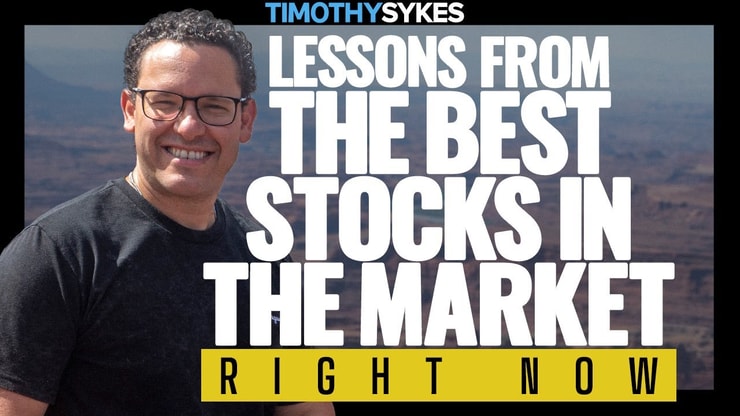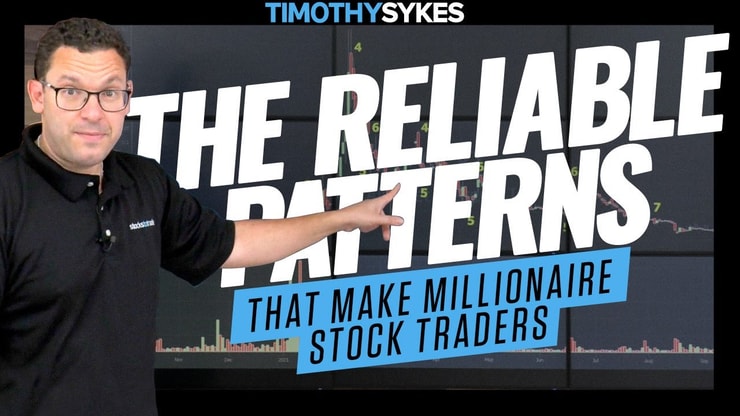The best long-term stocks in Canada are stocks in the Canadian market that offer substantial growth potential over an extended period. These aren’t your fly-by-night penny stocks; these are shares of well-established companies, often paying dividends, that promise steady growth. Ideal for long-term investors, these stocks serve as the cornerstone of many investment portfolios.
Whether you’re new to trading or a seasoned vet like me, a little shift in strategy doesn’t hurt. Even if I mainly focus on trading patterns, this article can help you diversify your approach and plan for the long haul.
You should read this article because it offers a comprehensive guide to the best long-term stocks in Canada, helping you diversify your trading strategy for substantial growth over time.
I’ll answer the following questions:
- What are long-term stocks in the Canadian market?
- How do long-term stocks differ from day trading?
- What metrics should you consider when investing in long-term stocks?
- What are some top Canadian stocks for long-term growth in 2024?
- How do you evaluate growth stocks based on performance metrics?
- What investment strategies should you consider for Canadian stocks?
- How do you choose your investment strategy for long-term stocks?
- What are the tax implications for investing in Canadian stocks?
Still with me? Good. Now let’s dig into the details.
Table of Contents
- 1 What Are Long-Term Stocks?
- 2 Understanding the Basics of Long-Term Investing in Canada
- 3 Top Canadian Stocks for Long-Term Growth in 2024
- 4 Investment Strategies and Considerations
- 5 Key Takeaways
- 6 Frequently Asked Questions
- 6.1 How Do I Start Investing in Canadian Stocks?
- 6.2 What Factors Should I Consider Before Investing in a Stock?
- 6.3 Are There Any Tax Implications for Investing in Canadian Stocks?
- 6.4 What Are the Benefits of Investing in TELUS?
- 6.5 How Does Inflation Impact Long-Term Stocks Like CNR.TO?
- 6.6 What Tips Can You Give for Investing in NA.TO?
- 6.7 Why Is TD.TO a Good Long-Term Stock?
- 6.8 Is There a Chance for New Competitors to Disrupt the Market?
- 6.9 How Does Production Impact Shareholder Value in CNQ.TO?
- 6.10 How Do Online Stores Affect Traditional Retail Stocks Like Ones in Canada?
What Are Long-Term Stocks?

Long-term stocks are the polar opposite of day trading; these are shares you hold for years, sometimes decades. Think of them as the tortoises in the stock market race — slow and steady wins it. They tend to offer dividends, and the primary focus here is on dividend growth and revenue over the long term.
It’s critical to be clear on what you’re getting into. Long-term stocks often involve a different set of metrics — EPS, dividend yields, growth rates — that can seem confusing. Still with me? Good. Let’s break this down in a digestible way, just as I’ve been teaching traders for years.
Understanding the Basics of Long-Term Investing in Canada
Long-term investing in Canada is not the same as day trading penny stocks; it’s about holding onto shares for an extended period, often years. The focus is on stocks with solid dividends, like Fortis and Canadian Natural Resources, where the dividend growth rate often correlates with stable, long-term gains. Companies that consistently make dividend payments and even provide dividend increases are particularly attractive to the dividend investor.
In Canada, profits and revenues play a significant role. You’ll want to look at metrics like revenue growth and EPS (Earnings Per Share) to get a sense of the company’s financial health. Keep an eye out for businesses that have a competitive advantage in their environment, whether through product innovation, a strong business model, or a robust team of employees. A variety of sectors offer opportunity for long-term investment, from railways like Canadian National Railway to banking giants like TD (Toronto Dominion Bank) and National Bank.
While dividends are a big deal in long-term investing, don’t overlook growth stocks. These are the stocks that may not pay dividends but offer substantial capital gains. They’re the rebels of the long-term investment world, often found in sectors like tech and renewable energy. If you’re the type who likes to see your investment multiply rather than trickle in through dividends, growth stocks could be your game. For a closer look at the ups and downs of growth stocks, check out this guide on Growth Stock Blues.
Overview of Investing in Canada
Canada’s stock market presents an exciting mix of sectors — from natural resources to tech to healthcare. Businesses operating here often have a broad footprint, not just in Canada but also in the U.S., Asia, and other countries. Investors often look at the economy, interest rates, and market capitalization to gauge opportunities.
What Are Long-Term Investments?
Long-term investments are all about patience and strategy. You’re not here to make quick cash; you’re building a portfolio for significant returns in the future. Stocks, mutual funds, ETFs, these are the instruments to look at. Dividends play a huge role, contributing to your cash flow and making dividend stocks a popular choice.
More Breaking News
- BigBear.ai Expands Partnerships and Strengthens Financial Position
- $30M Boost: Xinhui Solar Expands Jiuzi Holdings’ Reach in Southeast Asia
- HUMA Stock Shows Volatility Amid Speculation and Economic Factors
- Microbot Medical Eyes Expansion with Key Milestones in 2026
Pros and Cons of Canadian Stocks
Canadian stocks offer plenty, from high dividend yields to robust value growth. However, just as I always emphasize the importance of cutting losses quickly in trading, be mindful of the risk involved in long-term stocks too. Volatility and economic downturns can hurt profitability.
Canadian stocks offer a range of options, including an often-overlooked category: dividend-paying penny stocks. These are low-priced stocks that also offer dividends. It’s like having your cake and eating it too. They can be a good way to diversify your portfolio, especially if you’re looking for both growth and income. Intrigued? Dive deeper into the world of penny stocks that pay dividends.
Top Canadian Stocks for Long-Term Growth in 2024
My top Canadian long-term stocks picks are:
- Shopify Inc. (NYSE: SHOP)
- Brookfield Renewable Partners LP (NYSE: BEP)
- Brookfield Corp (NYSE: BN)
- BCE Inc (NYSE: BCE)
- Toronto-Dominion Bank (NYSE: TD)
If you’re going to take the plunge into long-term investment, you should be thinking about stocks with substantial growth potential. Stocks like Shopify and Alimentation Couche-Tard have exhibited remarkable share price ascents over the years. Acquisitions can sometimes be a sign that the company is expanding its footprint and diversifying its product lines.
Companies like ENB.TO (Enbridge) and FTS.TO (Fortis) are examples of dividend-paying stocks that have withstood recessions and even shown dividend increases. Monitoring news articles, newsletters, and other reading material can keep you abreast of sector trends, performance metrics, and financial reports that indicate strong growth potential.
Before you send in your orders, take note: I have NO plans to trade these stocks unless they fit my preferred setups. This is only a watchlist.
The best traders watch more than they trade. That’s what I’m trying to model here. Pay attention to the work that goes in, not the picks that come out.
Sign up for my NO-COST weekly watchlist to get my latest picks!
Shopify Inc. (NYSE: SHOP)
My first Canadian long-term stock pick is Shopify Inc. (NYSE: SHOP).
Shopify, listed on the NYSE, is a game-changer in the e-commerce industry. While not traditionally categorized as a dividend stock, it offers robust growth potential. The company has a strong book value and has been posting impressive sales and revenue figures. Its cash flow is also noteworthy, making it an attractive equity investment. Shopify’s services are not just confined to one area; they have a global reach, from Ottawa to London. The company has a solid reputation among clients and customers, and its stock portfolio is something many investors eye for long-term growth. It’s a stock that has shown resilience even during the pandemic, making it a compelling purchase for many.
Brookfield Renewable Partners LP (NYSE: BEP)
My second Canadian long-term stock pick is Brookfield Renewable Partners LP (NYSE: BEP).
Brookfield Renewable Partners, or BEP.UN, is a key player in the renewable energy sector. This company is a dividend stock with a focus on dividend growth. It’s a part of various ETFs and has a significant presence in the utility industry. With operations spanning from Calgary to Halifax, it’s a major player in natural gas and other renewable resources. The company has a strong approach to sustainability, which adds to its reputation and makes it a solid addition to any investment portfolio.
Brookfield Corp (NYSE: BN)
My third Canadian long-term stock pick is Brookfield Corp (NYSE: BN).
Brookfield Corp is another heavyweight, especially when it comes to assets and investments in various sectors like real estate and infrastructure. It’s closely related to Brookfield Infrastructure Partners and operates under the ticker BAM.A. The company has a diversified portfolio, including pipelines and utilities. With a strong presence in cities like Edmonton and Winnipeg, it offers a range of services that cater to both individual and institutional clients. It’s a stock that many consider for both dividend growth and long-term value.
BCE Inc (NYSE: BCE)
My fourth Canadian long-term stock pick is BCE Inc (NYSE: BCE).
BCE Inc, commonly known as Bell Canada, is a telecommunications giant listed on the stock exchange. It’s a dividend stock with a favorable payout ratio, making it a popular choice among investors looking for steady income. The company has a broad customer base, from Quebec to Charlottetown, and offers various services, including natural gas and crude oil. Its strong cash flow and assets make it a reliable equity investment, especially for those looking to diversify their portfolios with utility stocks.
Toronto-Dominion Bank (NYSE: TD)
My fifth Canadian long-term stock pick is Toronto-Dominion Bank (NYSE: TD).
Toronto-Dominion Bank, or TD, is one of Canada’s leading banks and a staple in dividend portfolios. With a focus on dividend growth and a reasonable dividend payout ratio, it’s a go-to for many investors. The bank has a strong presence across Canada, from Ottawa to Fredericton, and offers a range of services, from savings accounts to trades. It’s a stock that has shown resilience in various market conditions, including the pandemic, and offers both stability and growth potential.
Evaluating Growth Stocks Based on Performance Metrics
Before adding any company to your list, scrutinize performance metrics — earnings, margins, sales, and EPS. Your growth rate and return need to be convincing. And let’s not forget the importance of revenue and dividends, especially their growth over time. Do it like I examine trading patterns — meticulously and without haste.
Investment Strategies and Considerations
Investing in Canadian stocks isn’t just about throwing your money at the most popular names; it requires strategy. Different index funds or mutual funds can provide a balanced portfolio, while more adventurous investors might opt for individual stocks like Royal Bank or Canadian Natural Resources. For those interested in finance, companies specializing in wealth management could be a game-changer.
While you should always diversify, you also have to recognize the type of investor you are. Are you risk-averse, focusing on steady dividend payments? Or are you a go-getter who’s in it for the share price gains and big rewards? Either way, you should have access to a variety of resources, from reading up on financial articles to consulting with a wealth management team. The bottom line? Take your time, do your homework, and remember that long-term investing in a country like Canada offers both stability and opportunity.
How To Choose Your Investment Strategy
Your strategy is your roadmap. My advice? Base your decisions on your risk tolerance and comfort level. There are various approaches — dividend investing, focusing on growth stocks, or a blend. Factor in acquisition opportunities, industry trends, and competitor dynamics.
Your investment strategy should be as diverse as the types of stocks available. From blue-chip to penny stocks, each comes with its own set of rules, risks, and rewards. Understanding these different types can help you create a more balanced and resilient portfolio. It’s not just about diversifying across sectors but also across stock types. For a comprehensive understanding of the different kinds of stocks you can invest in, check out this guide on different types of stocks.
How To Manage Your Investments
This is the part where your money is put to work. Whether you opt for a robo-advisor or go the old-school financial advisor route, the key is proper planning and advice. You might also need a retirement savings plan, as long-term stocks can be an excellent addition to your portfolio for post-retirement income.
Key Takeaways

If you’re planning to invest in Canadian long-term stocks, do your homework first. Whether it’s dividend stocks like Enbridge or growth potential powerhouses like Shopify, each company has its own set of opportunities and risks. It’s a different beast from what I usually trade, but if you’re in it for the long haul, Canada has a lot to offer.
Trading isn’t rocket science. It’s a skill you build and work on like any other. Trading has changed my life, and I think this way of life should be open to more people…
I’ve built my Trading Challenge to pass on the things I had to learn for myself. It’s the kind of community that I wish I had when I was starting out.
We don’t accept everyone. If you’re up for the challenge — I want to hear from you.
Apply to the Trading Challenge here.
Trading is a battlefield. The more knowledge you have, the better prepared you’ll be.
What Canadian long-term stocks are on your watchlist? Let me know in the comments — I love hearing from my readers!
Frequently Asked Questions
How Do I Start Investing in Canadian Stocks?
First off, you need a brokerage account. Then decide whether you want to manage your investments or need financial advice. Consider diversifying across sectors — like utilities, natural resources, and technology.
What Factors Should I Consider Before Investing in a Stock?
The usual suspects — dividend yield, growth rate, EPS — are your starting points. But also look at the industry, its future growth prospects, and competition. I’ve made my career teaching traders to scrutinize before they leap; the same applies here.
Are There Any Tax Implications for Investing in Canadian Stocks?
Yes, taxes are a significant consideration. Dividend income and capital gains are subject to tax. Depending on your residence, whether in Alberta or Ontario, tax laws can differ. You should consult a tax advisor to navigate the complexities.
What Are the Benefits of Investing in TELUS?
TELUS has been a consistent performer with a strong position in the telecommunications market. It offers shareholders various benefits, including consistent production of revenue and competitive advantages against other competitors in North America.
How Does Inflation Impact Long-Term Stocks Like CNR.TO?
Inflation can affect the purchasing power of money, and it’s a factor that shareholders should consider. CNR.TO has shown resilience in times of inflation, thanks to its well-structured pipeline network that enables efficient operations.
What Tips Can You Give for Investing in NA.TO?
One tip is to look at the company’s position in asset management. NA.TO is a leader in this sector, providing shareholders with potential benefits through diversified investment products.
Why Is TD.TO a Good Long-Term Stock?
TD.TO or TD Bank has shown consistent growth and strong asset management. Its competitive position in the banking sector in North America makes it attractive for shareholders interested in long-term benefits.
Is There a Chance for New Competitors to Disrupt the Market?
While there is always a chance for new competitors, companies like CNQ.TO have built a robust pipeline network that gives them a secure position against newcomers. This offers benefits to existing shareholders.
Production is a key aspect that impacts the benefits for shareholders. High levels of production in assets like pipeline networks help CNQ.TO maintain a leader position, which in turn adds value for shareholders.
How Do Online Stores Affect Traditional Retail Stocks Like Ones in Canada?
Online stores and the rise of internet commerce have had a profound impact on traditional retail stocks. For example, companies focused on physical store locations have had to adapt to the new landscape by integrating online platforms. This trend affects “ones” or individual retail stocks in Canada, prompting them to reassess their strategies to maintain competitive advantage.





Leave a reply